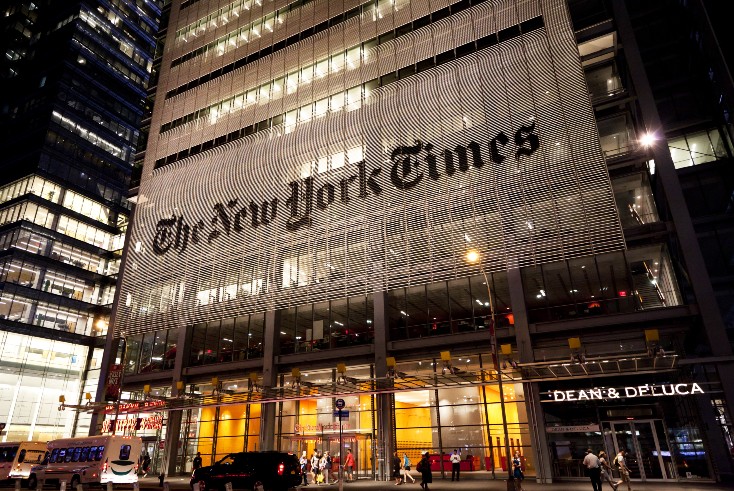New York Times lawsuit against OpenAI highlights lack of uniformity among publishers' AI strategies


The New York Times is suing OpenAI and Microsoft.
Last week, the publisher filed a lawsuit against the respective ChatGPT creator and investor, alleging the companies of copyright infringement for “copying and using” millions of NYT articles for their generative AI products.
The lawsuit does not specify the amount in damages NYT claims it is entitled to, but estimated it to be “billions of dollars”. The company is also calling for the destruction of any chatbot models and training data that uses its material.
It is the first time a major US publisher has sued the companies over copyright infringement. Individual authors and artists, like George RR Martin, Jonathan Franzen and Sarah Silverman, have previously sued the likes of OpenAI on similar grounds.
NYT had previously sought an “amicable resolution” to its concerns with OpenAI and Microsoft, including a potential commercial agreement, but conversations stalled. A spokesperson for OpenAI publicly commented that it is “hopeful that we will find a mutually beneficial way to work together, as we are doing with many other publishers”.
It was only a matter of time before a major publisher took the leap to sue OpenAI.
Apart from its alleged illegality, generative AI chatbots risk putting publishers out of business. Assuming the technology becomes more trustworthy and increasingly popular, audiences may regularly turn to chatbots to receive news in the near future, threatening to reduce publishers’ traffic and, in turn, advertising and subscription revenue – despite the publishers creating the content.
Richard Reeves, managing director at the Association of Online Publishers, has previously raised such concerns to The Media Leader, arguing that publishers risk feeding their direct competition by allowing AI companies access to intellectual property (IP).
Why 2023 showed ‘video is the next most important thing in publishing’
Such disquiet has not stopped publishers including The Associated Press and Axel Springer (which owns Politico, Insider and Bild) from cutting deals with AI companies, granting them access to news articles on which to train their algorithms for undisclosed sums.
On the other hand, outlets such as NYT, CNN, Bloomberg and The Guardian have all taken steps to block ChatGPT’s web crawler from accessing their IP. Now, NYT is ratcheting up the pressure.
But with companies like Apple reportedly also pursuing similar deals with publishers, with some worth in excess of $50m, many will find such offers too tempting to pass up – especially given ongoing challenges facing the digital and print news markets and the apparent inevitability of AI’s development for news use.
Still, if news becomes even more commoditised through AI, publishers will need to develop new selling propositions, such as through pushing opinion pieces, analyses and features.
NYT itself may be using the lawsuit as something of a bargaining chip in its own ongoing discussions with OpenAI and Microsoft, and could drop charges if the parties ultimately agree on more favourable terms for the publisher in exchange for allowing AI bots legal access to its material.
